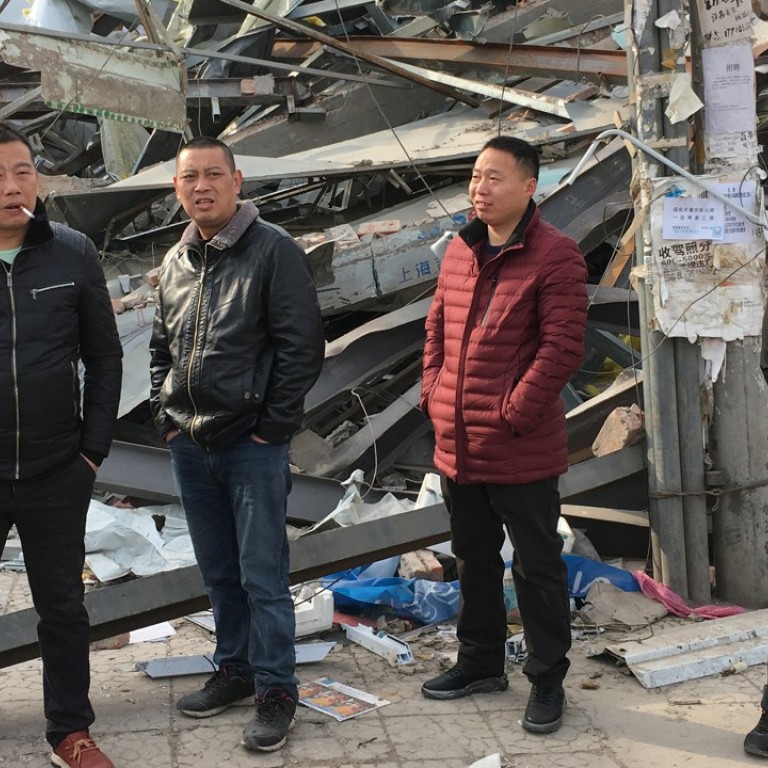
Letters to the Editor, January 17, 2018
Beijing needs these migrant workers
It is ironic that so many migrant labourers are being expelled from Beijing by the Communist Party-controlled municipal government. Ironic, because 100 years ago a young person came to the capital to work at Peking University. He was from a rural background, but was ambitious and this migrant, Mao Zedong, was one of the founders of the party.
Thousands of migrant workers have been forced to leave their homes in Beijing as buildings where they were living have been demolished. This follows a fire in November in an illegal structure in the city which killed 19 people. The authorities are worried about hazardous makeshift buildings with no fire safety regulations.
Over a very short period of time shop houses, restaurants and other businesses have been reduced to rubble. The scenes are shocking and in some places it looks as though a bomb went off. The people who are displaced have no power or money, so there is nothing they can do.
Some critics say they government is just using the fire as an excuse to drive the poor out of Beijing.
To make matters worse the city authorities have created a new and insulting term for these migrants – “the low-end population”. People think this is very insulting, especially since the “proletariat” are celebrated in the lyrics of the national anthem. Now, they are being treated like so much human refuse.
While the Beijing municipal government is seen as the chief culprit, it is unlikely to have acted without the backing of the central government.
I suspect that despite officials’ best efforts these migrant workers will quietly return to the capital after Chinese New Year.
They will do so to meet a demand in the capital for people in various jobs such as street cleaners, postmen and servants. Without them I do not think the city can function. These workers are essential. Perhaps officials want to present a picture of a capital with no slums and other illegal dwellings, but this is not realistic.
It is typical of the Communist Party to adopt crude tactics to deal with an issue. They have an almost instant effect, but the deep-rooted social problem remains unresolved. And sometimes (for example, the Great Leap Forward, the Cultural Revolution) things are even worse than before.
Li Yanzhou, Kowloon City
Buskers add to vibrant arts scene in city
Busking has become quite a controversial issue in Hong Kong. It is seen as an integral part of our street culture and yet some people object to it, because they say it exacerbates congestion in crowded urban areas and can disturb nearby residents if the performers are noisy.
However, it is popular and shows that Hong Kong is an international city and willing to assimilate art forms from different societies, in this case Europe.
While some people do object to it I think most citizens enjoy seeing buskers on our streets. We have a lot of cultural events such as the Hong Kong Arts Festival and I think people are becoming more aware of the city’s vibrant arts scene.
If buskers obey the relevant regulations and do not cause a disturbance the government should encourage them.
Zoe Chung Ka-man, Po Lam
Long hours on computers bad for children
Late last year a survey found that children in Hong Kong spent more time on their computers, smartphones and similar devices than their peers on the mainland or in the US. It pointed out that if they devote so many hours to online pursuits at the expense of exercising, they are likely to lead unhealthy lifestyles, which is why so many local youngsters are overweight.
With these bad habits starting at a young age they are at greater risk of suffering from mental and physical health problems as they get older.
These children are allowed to spend so much time on computers and watching TV because of flawed parenting. Many parents do not spend much time with their children or try to find out what they do with their spare time. They will often allow their sons and daughters to just sit in front of the computer, because then they do not have to communicate. Parents must reflect on what they are doing and make things right.
When used responsibly these electronic devices can be a boon for adults and children and help communication between family members. Parents need to teach responsible use of computers and smartphones.
Eva Chow, Tseung Kwan O
All primary schools should have lockers
Yet another survey has shown that Hong Kong primary school pupils are regularly carrying school bags that are overweight.
This can have a detrimental effect on the health of such young children. They could sustain injuries like back strain which, if not treated, could become chronic.
One simple way to deal with this that could be implemented quickly would be for teachers to modify homework assignments so that pupils do not have to take back a lot of heavy textbooks every night. Schools give out too much homework at the moment, so such a modification is long overdue.
In the longer term the simplest solution is for the government to provide subsidies to all local primary schools so that they can install lockers for each pupil. They can then leave heavy textbooks that they do not need for homework in their locker for class the next day.
Getting these lockers is such a straightforward solution and the Education Bureau should have them installed as soon as possible.
Jessica Tsui Kit-lam, Kwai Chung

